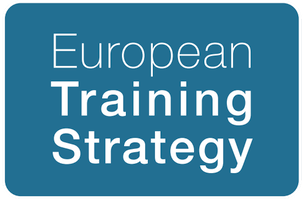
Competences are dynamic and all their elements are interrelated and interdependent. In the competence model, we focus on the following four dimensions: attitudes, knowledge, skills, and behaviours.
Attitudes (the youth worker’s willingness) are the pre-requisite, the foundation for competence development. They lead to Knowledge (gained through experience, books, the Internet, etc.) and Skills (ability to perform a task, to apply knowledge and turn attitudes into actions), which will then lead to appropriate and contextual Behaviour.

Behaviours can be defined as the way in which one acts or conducts oneself, especially towards others. Therefore, behaviour encompasses attitudes, knowledge, and skills. Through one”s behaviour, we can assess the competencies level of the youth worker. In short: behaviour reflects the underlying attitudes of a youth worker.
Motivate and empower young people + -
It is to support young people in the way they approach, design and engage (in) their learning process, and beyond.
Involve and encourage young people + -
It is to help them to take an active role (in their learning process, in their communities…)
Support and encourage interaction + -
It is to work with and within the group, with the environment, through sharing, and learning from each other.
Show flexibility and adaptability + -
It is dealing with uncertainty and ambiguity and in adjusting to changing situations.
Link theory and practice + -
It is to translate and apply theoretical concepts and key principles in youth work practice.
Perform tasks/having aims and objectives (main intentions) in mind + -
It is respecting the framework of the activity or project.
Consider the needs of young people + -
It is to build programmes and interventions that are, as much as possible, based on the needs of young people.
Show sensitivity and support + -
It is to give support to the / in the team.
Self-reflect + -
It is to explore what influences one’s professional (and personal) development.
Analyse, sense and interpret + -
It is to consider behaviours (actions, words, body language) .
Apply (appropriate) tools and methods + -
It is to use methods that facilitate individual and group learning processes.
Take a proactive role and demonstrate + -
It is to show and practice agility to transform, adapt and adjust, including in digital environments.
Confront/speak out + -
It is to stand up against injustice, unfairness, discrimination, resistance, ….
questions of power, privilege and solidarity + -
Bring to the surface and discuss the questions of power, privilege and solidarity in the group (and in the wider community).


